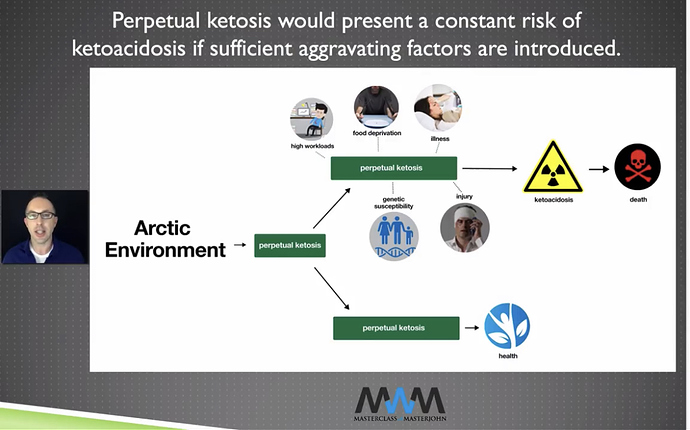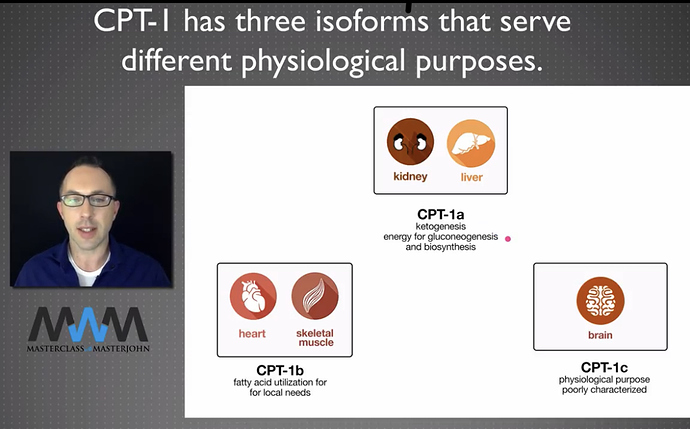I am going down a rabbit hole you guys.
https://www.drmcdougall.com/misc/2015nl/apr/eskimos.htm
Of particular interest (sounds more like an argument for keto diet than against it):
“The fat, not the protein, from animal foods provided most of the 3,100 calories required daily for these active people. Plants are the primary source of all carbohydrates, including digestible sugars and non-digestible dietary fibers. Eating raw meat indirectly provided Eskimos with enough carbohydrates in the form of glycogen (found in the muscles and liver of animals) to meet their necessary nutrient requirements and keep them out of a starvation condition called ketosis. Muscle tissue contains almost no calcium, and as a result the daily intake was about 120 mg/day versus the 800 mg and more commonly recommended for good health. Plants (not people) synthesize Vitamin C, yet the Eskimo was able to avoid scurvy with the 30 mg of vitamin C consumed daily found in land and sea animals. Recommendations for vitamin C are 60 mg/day and higher daily. Low levels of sunlight, and preformed vitamin D from fish, met the “sunshine D vitamin” requirement for Eskimo health. By the grace of environmental design, Nature made sure there was just enough nutrition for the Eskimo to survive.”
He then goes on to describe all of the health problems Inuit have. Are these problems really because of what they ate or something else?


